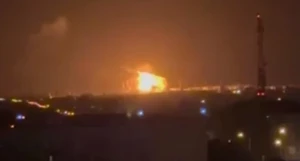
Are NATO strategies flawed? Lessons from Ukraine's summer offensive
Oleksiy Danilov, Secretary of Ukraine's National Security and Defense Council, questions the effectiveness of NATO strategies after the summer counteroffensive fell short. But, were these strategies flawed from the start?
Defense Express writes about this.
In an interview with the BBC, Danilov acknowledged that optimism about Ukraine's counteroffensive, based on NATO predictions, may have been misplaced. He suggested these “textbooks”, once integral to Ukrainian brigade preparations, might need to be disregarded.
Notably, as of April 2023, the Pentagon had conducted mathematical simulations of Ukraine's counteroffensive, incorporating scientific insights and intelligence data. Command and staff games tested offensive strategies, including practical exercises mirroring potential combat scenarios.
However, the execution fell short, the publication notes. Unrealistic assumptions, such as overcoming dense minefields and countering long-range enemy strikes, were unaddressed. The envisioned total air superiority clashed with the reality of navigating intricate minefields.
In essence, Ukraine's experience raises doubts about the applicability of NATO strategies in real-world scenarios, pointing to critical gaps in planning and execution.
Despite astronomical losses and successful territorial defense, Russia continues to pour resources into war, rendering NATO's concept of air superiority obsolete. Ukraine, with limited tactical aviation and aging anti-aircraft systems, defied the odds against Russia's vast air fleet.
Looking ahead, there are doubts about NATO's confidence in numerical and technological superiority over Russia. The Ukrainian perspective suggests discarding old NATO strategies, highlighting the need for practical tools and unconditional support to counter Russia. Urgent implementation of strict sanctions and holding nations accountable for supporting Moscow is crucial in breaking the Kremlin's influence.
- News














































